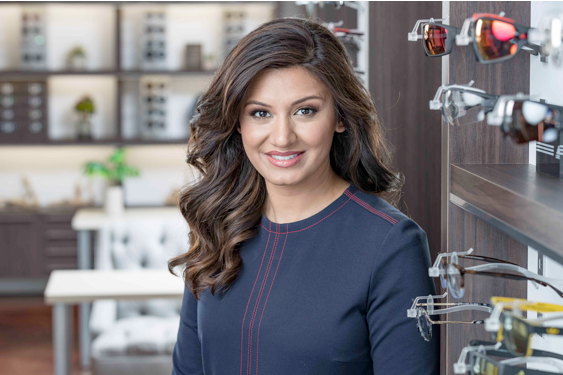
Dr. Lasee
What inspired you to pursue optometry?
ZL: There are some things in life you just do because of an internal drive controlled by a force beyond the scope of one’s own understanding. I was an auditor working in a detail-oriented profession, which seemed to suit my personality but found myself internally dissatisfied. I needed to heal people somehow and now looking back, I received way too many sings from the universe that I had to heal eyes. Knowing I disliked surgery, went for optometry. I just think it’s so awesome to have a profession that is already organ specific without having to go through medical school, so I didn’t even apply to medical school. Like a bullet train, I look the classes needed for optometry school and kept tunnel vision until I perused the goal. I have never ever looked back. I was born to do this.
What is the most rewarding part of your career?
ZL: Hands down, has to be keratoconus treatment and management. This is an unfortunate disease, that without proper care, can leave someone practically blind and economically enviable. It's insanely satisfying to give someone their life back with specialty contact lenses, and I wake up excited to do it every day. I even placed my practice in a location so that people with the disease can take the bus from any of the cities around Phoenix and reach my practice. I strategically found a place where the bus stops in front of the business for the keratoconus patients.
How important is it to incorporate eye health into one’s wellness routine?
ZL: What has not been explained to many people is that vision is responsible for majority of brain development from birth to age 3; thereafter one's performance in school is in many ways directly correlated to the ease of vision. Furthermore, an eye doctor can tell you weather or not you have a disease sometimes years before it shows up in blood work, and we play a key role in preventative medicine. Contact lenses must be evaluated annually by a doctor to make sure that it is not robbing a very delicate tissue of key nutrients. Also, yes, everyone should be wearing the latest and greatest contact lens, always. If you have not had a new contact recommended for several years, it is time to seek new council, this is not the place to try and save money.
What are everyday measures one can take to aid eye health?
ZL: Believe it or not, nix the over-the-counter eye vitamins. This has very much turned into a marketing gimmick. Eye vitamins should be distributed accordingly and directly through your eye doctor. Also, do not take over-the-counter red eye reducers on a daily basis. What you can do is load up on raw nutrients, green vegetables and omega 3 fatty acids; great for the eyes, blood vessels and brain tissue.
